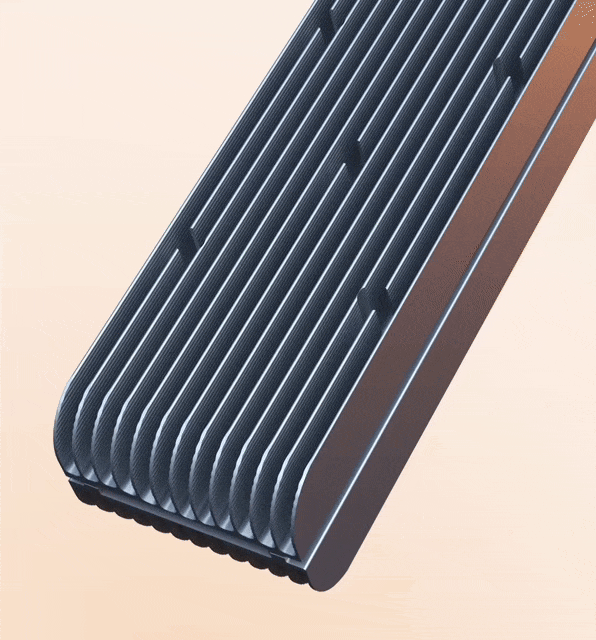Hestiia Introduces a Unique Heating Solution by Utilizing Crypto Mining

We all know that crypto mining consumes a significant amount of energy. Bitcoin itself is estimated to use 127 terawatt-hours per year. If Bitcoin were a country, it would rank as the 32nd largest electricity consumer in the world. A significant portion of this energy is emitted as heat, which needs to be cooled down in data centers. So, wouldn't it be great if we could utilize this excess heat? That's the fundamental idea behind Hestiia, which places a miner on a radiator on your wall and uses the surplus heat generated from mining to heat your home.
The company's innovative home heater utilizes recycled data center chips to produce heat, making it an intelligent and eco-friendly solution for modern homes.
"Three-quarters of heating is still reliant on fossil fuel heating. Governments worldwide are banning fossil fuel heating and promoting electric heating instead. Heat pumps are seen as the primary option, but they are costly, challenging to install, noisy, and aesthetically unappealing. So, we decided to replace the traditional heater with a computer," explained Antoine Cossart, the CEO and founder of Hestiia, at CES 2024.
The system aims to balance the variable energy supply from renewable sources with demand. It preheats the home before the homeowner returns, switches off when energy-consuming appliances are in use, and resumes operation afterward. This approach not only maintains a comfortable indoor temperature but also helps stabilize the grid.
Hestiia's heaters are powered by recycled ASIC chips sourced from data centers upgrading to newer models. These chips are repurposed onto a custom-made board to generate heat for residential use. The use of conductive layers and heat pipes ensures efficient heat transfer, maximizing the emitted warmth.

The front panel of the heater is constructed from a material derived from recycled resin and plastics. The dual-core heating system delivers both convection and radiant heating, controlled via an app allowing users to set their desired temperature. As the temperature rises, more chips are activated to supply the required heat.
Hestiia's innovative heating system also offers the potential for distributed data processing. This means the heaters could be utilized for data processing services like SETI or blockchain applications, transforming the heaters into distributed computational centers.
With data centers consuming extensive electricity and often wasting heat, Hestiia's approach provides a sustainable solution.
"Next, as AI continues to expand, consuming more electricity and generating additional heat, we aim to provide distributed AI compute power as well," Cossart stated. "Instead of considering waste heat, we prefer to repurpose it intelligently."
Currently in the beta testing phase, Hestiia has released a few products for testing. The company plans to commence shipping next month, having already pre-sold 230 units and aiming to sell 1,000-2,000 units this year, primarily in France.

While blockchain technology may seem ethereal, Hestiia's innovative approach transforms it into a tangible and valuable heating solution. Even if blockchain technology loses popularity, the heaters will remain pertinent due to the ongoing demand for computational power.
The main challenge lies in the rapid growth of computational power. Home heating pumps have a lifespan of 15-20 years, and it's questionable whether today's Hestiia heaters will effectively contribute to computation-heavy tasks in 15 years. Consider this: Can you name a computer from 2009 that still plays a meaningful role in today's AI computational needs?
Nonetheless, it's exciting to witness startups reimagining the fusion of computation and climate change.
The startup is currently seeking a bridge round of approximately €1 million, following a previous funding round of €5 million a few years ago.

